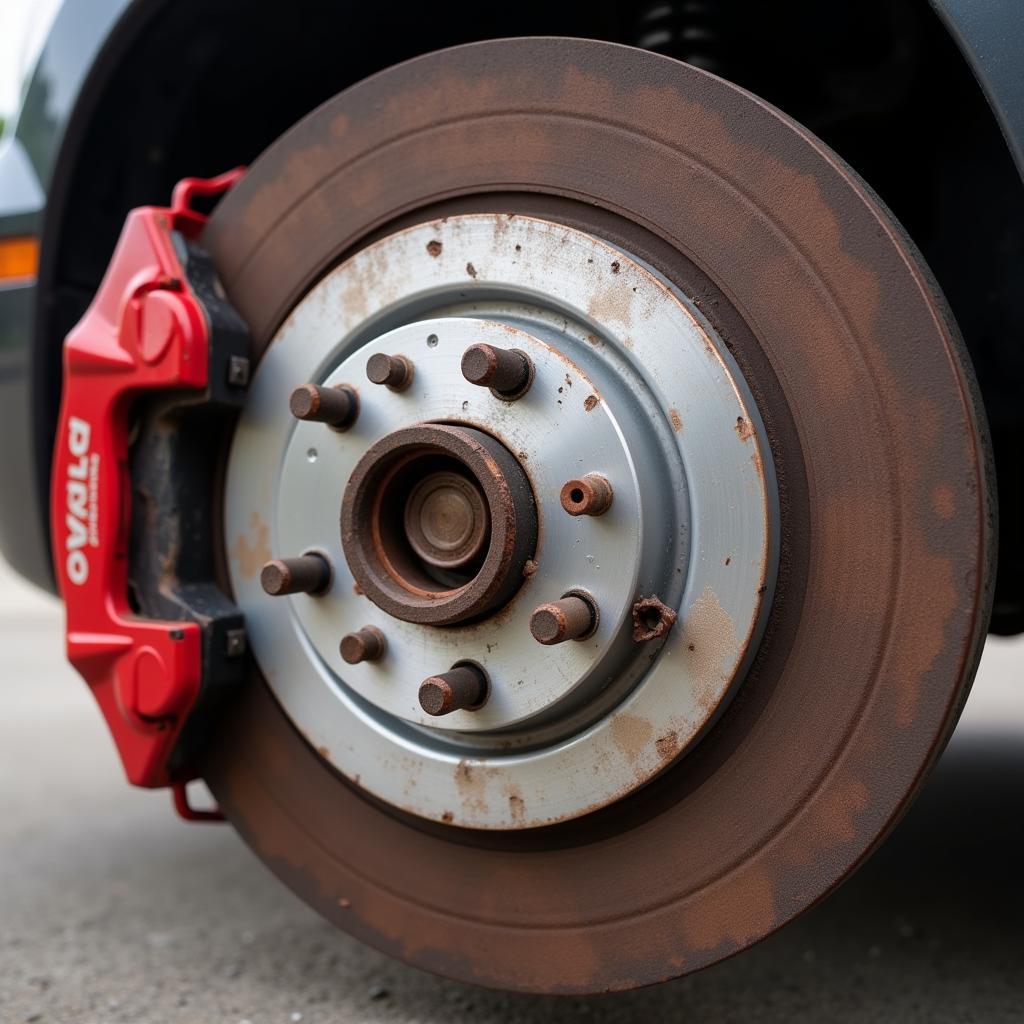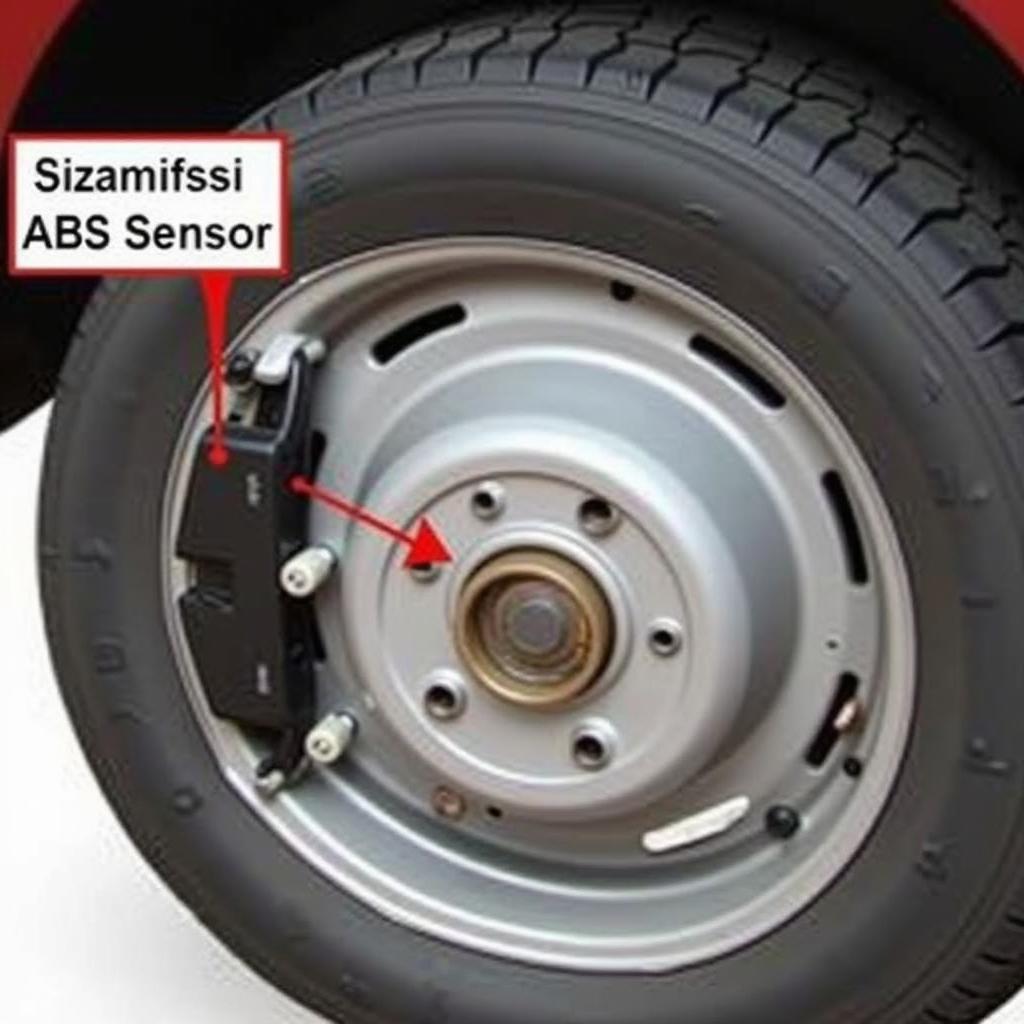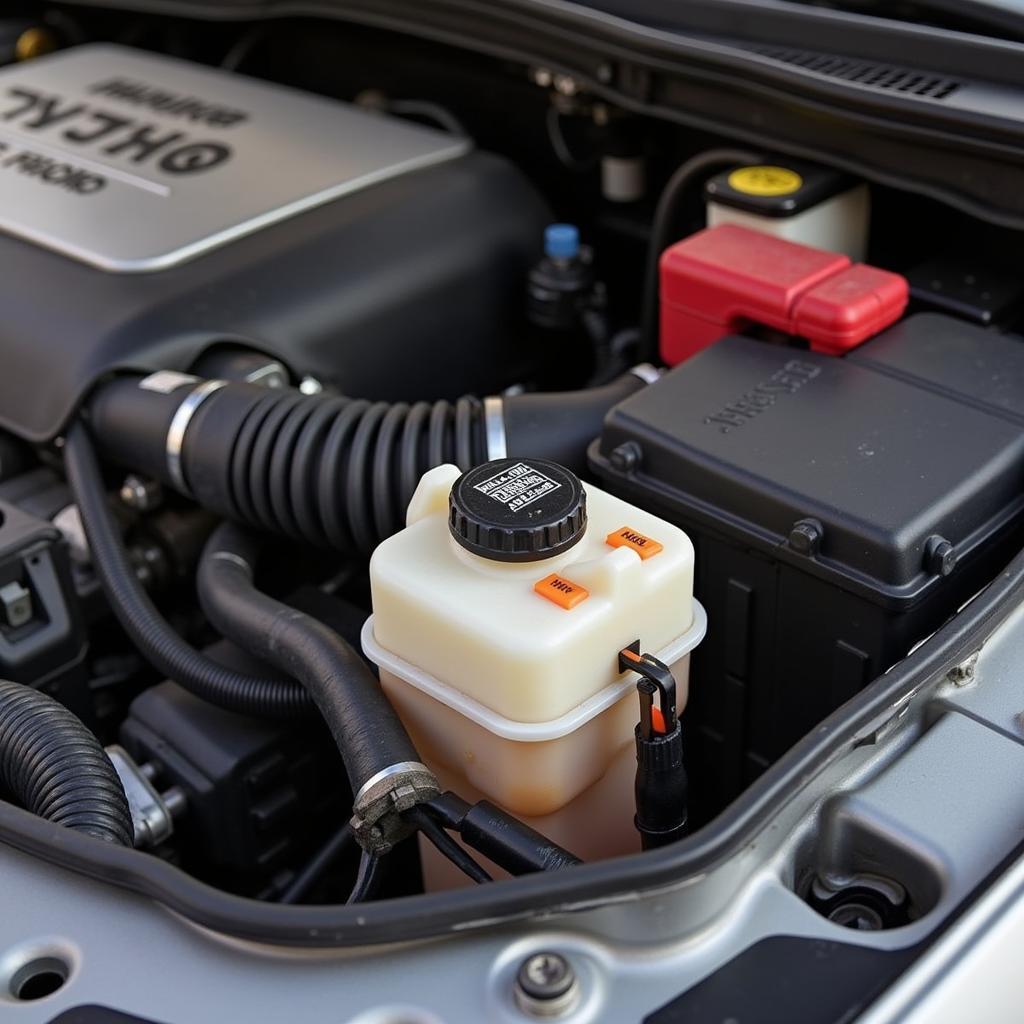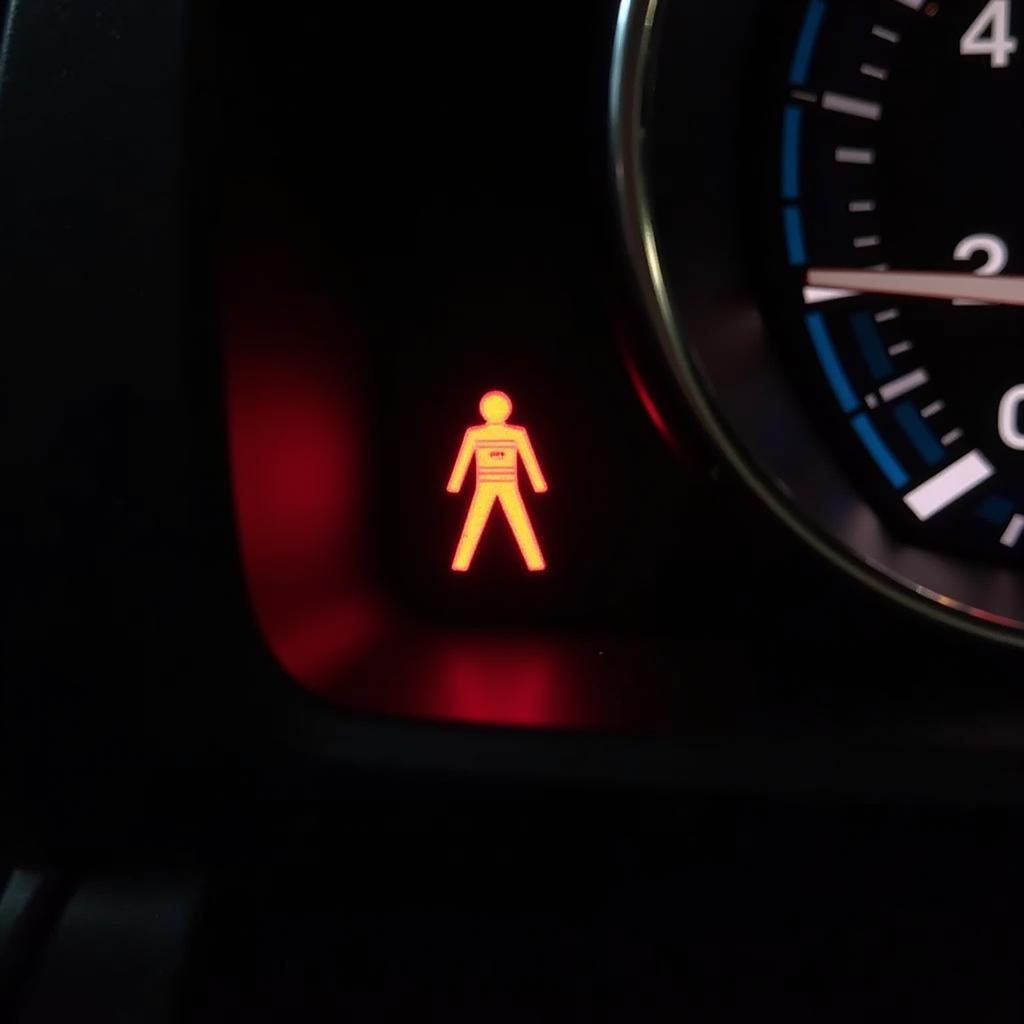If you’re driving a 2008 Chevy HHR and your brake indicator warning light suddenly illuminates, it’s crucial not to ignore it. This light is your car’s way of signaling a potential issue with your braking system, which is critical for your safety on the road. While the problem might be minor, like worn brake pads, it could also indicate a more serious issue requiring immediate attention.
This comprehensive guide will delve into the common reasons behind the 2008 Chevy HHR brake indicator warning lights, how to diagnose the problem, and the potential solutions to get you back on the road safely.
Understanding Your Chevy HHR Brake Warning System
The 2008 Chevy HHR utilizes a sophisticated system of sensors and lights to keep you informed about your brake system’s health. When the system detects an abnormality, it triggers the brake indicator warning light on your dashboard. Here’s what the different lights could mean:
- Red Brake Warning Light: This light typically signals a critical issue with your braking system. It could mean a loss of brake fluid, a serious hydraulic failure, or a problem with the ABS (Anti-lock Braking System). If this light comes on, it’s crucial to pull over immediately and seek professional assistance.
- Yellow ABS Warning Light: This light indicates a potential problem specifically with your ABS system. While you might still have regular braking power, the ABS, which helps prevent wheel lockup during hard braking, might not function correctly. It’s essential to have this diagnosed and repaired as soon as possible.
Common Causes of 2008 Chevy HHR Brake Light Issues
There are several reasons why your 2008 Chevy HHR’s brake indicator warning light might illuminate. Here are some of the most common culprits:
1. Worn Brake Pads
Brake pads are designed to wear down over time. When they reach a certain point of wear, the brake pad wear sensor will trigger the warning light.
 Worn Brake Pads on a Chevy HHR
Worn Brake Pads on a Chevy HHR
2. Low Brake Fluid
Your brake system relies on hydraulic pressure to function correctly. If there’s a leak in the system, it can lead to a drop in brake fluid level, which will trigger the warning light.
3. Faulty Brake Light Switch
The brake light switch is responsible for activating your brake lights when you press the pedal. A malfunctioning switch can cause the brake lights to stay on, flicker, or not work at all, potentially triggering the warning light.
4. ABS Sensor Issues
The ABS system relies on sensors at each wheel to detect wheel speed and prevent lockups. If one or more of these sensors become dirty, damaged, or fail, it can trigger the ABS warning light.
 ABS Sensor Location on a Chevy HHR
ABS Sensor Location on a Chevy HHR
5. Issues with the Master Cylinder
The master cylinder is a vital component of your braking system. It’s responsible for converting the force from your foot on the brake pedal into hydraulic pressure that activates the brakes. A failing master cylinder can lead to a soft or spongy brake pedal feel and trigger the warning light.
Diagnosing the Problem
Determining the exact cause of your brake indicator warning light requires some investigation. Here’s what you can do:
-
Check the Brake Fluid Level: Park your car on a level surface, open the hood, and locate the brake fluid reservoir. The reservoir should have a “Min” and “Max” marking on the side. If the fluid level is below the “Min” mark, it indicates a leak that needs immediate attention.
-
Inspect the Brake Pads: You can visually inspect your brake pads by looking through the spaces between the spokes of your wheels. If the pads are worn thin (less than 1/4 inch of friction material remaining), it’s time for a replacement.
-
Scan for Trouble Codes: If your brake light is on, a mechanic can use a diagnostic scanner to read the trouble codes stored in your car’s computer. These codes can provide valuable insights into the specific area of the braking system experiencing issues.
When to Seek Professional Help
While some brake light issues might be simple to diagnose and repair yourself, it’s crucial to remember that brakes are critical for your safety. If you’re unsure about any aspect of the diagnosis or repair, it’s always best to consult a qualified mechanic specializing in Chevy vehicles.
Preventing Future Brake Problems
Taking proactive measures can help prevent future brake problems and ensure your Chevy HHR remains safe to drive:
- Regular Brake Inspections: Have your brakes inspected by a qualified mechanic at least once a year or every 12,000 miles, whichever comes first.
- Timely Brake Pad Replacements: Don’t wait for your brake pads to wear down completely before replacing them. Replace them as soon as they reach the recommended wear limit.
- Address Brake Fluid Leaks Promptly: If you notice a drop in brake fluid level, have the leak diagnosed and repaired immediately.
 Brake Fluid Reservoir in a Chevy HHR
Brake Fluid Reservoir in a Chevy HHR
Conclusion
Ignoring your 2008 Chevy HHR’s brake indicator warning lights can have serious consequences. By understanding the potential causes, knowing how to diagnose the issue, and seeking professional help when needed, you can ensure your braking system remains in optimal condition, keeping you and your passengers safe on the road.

